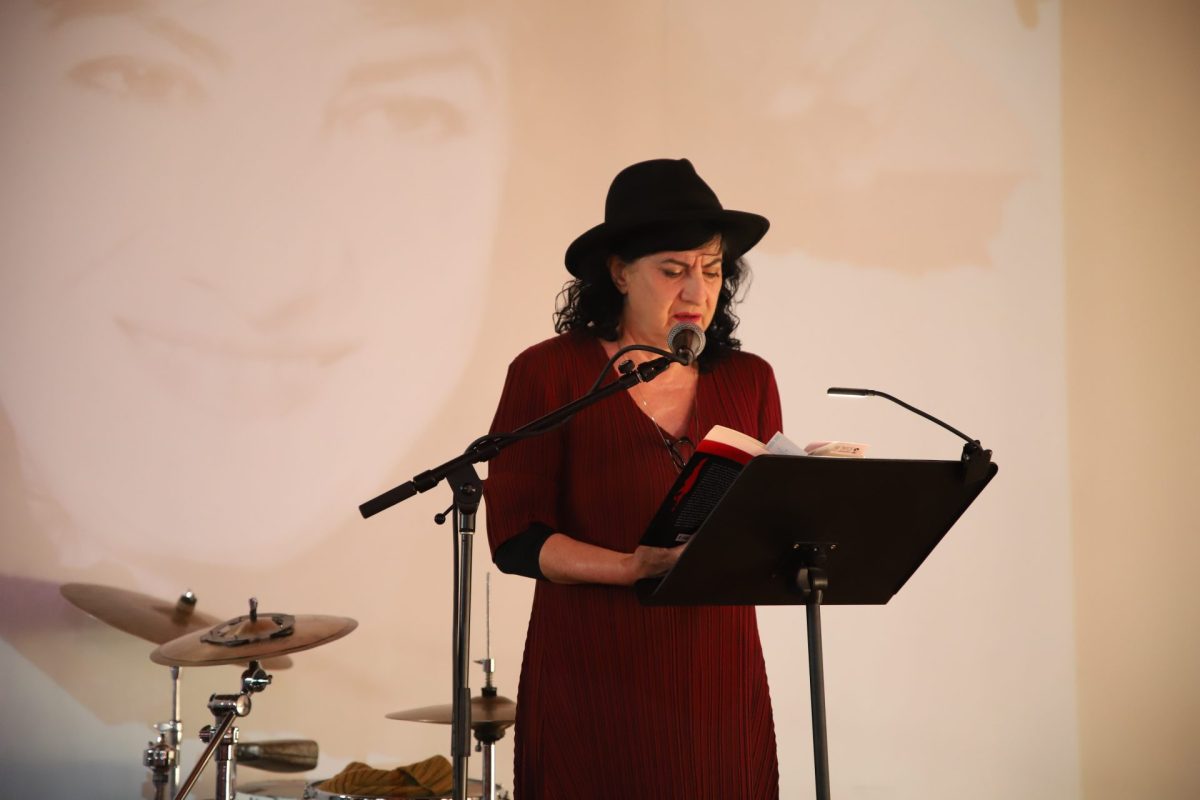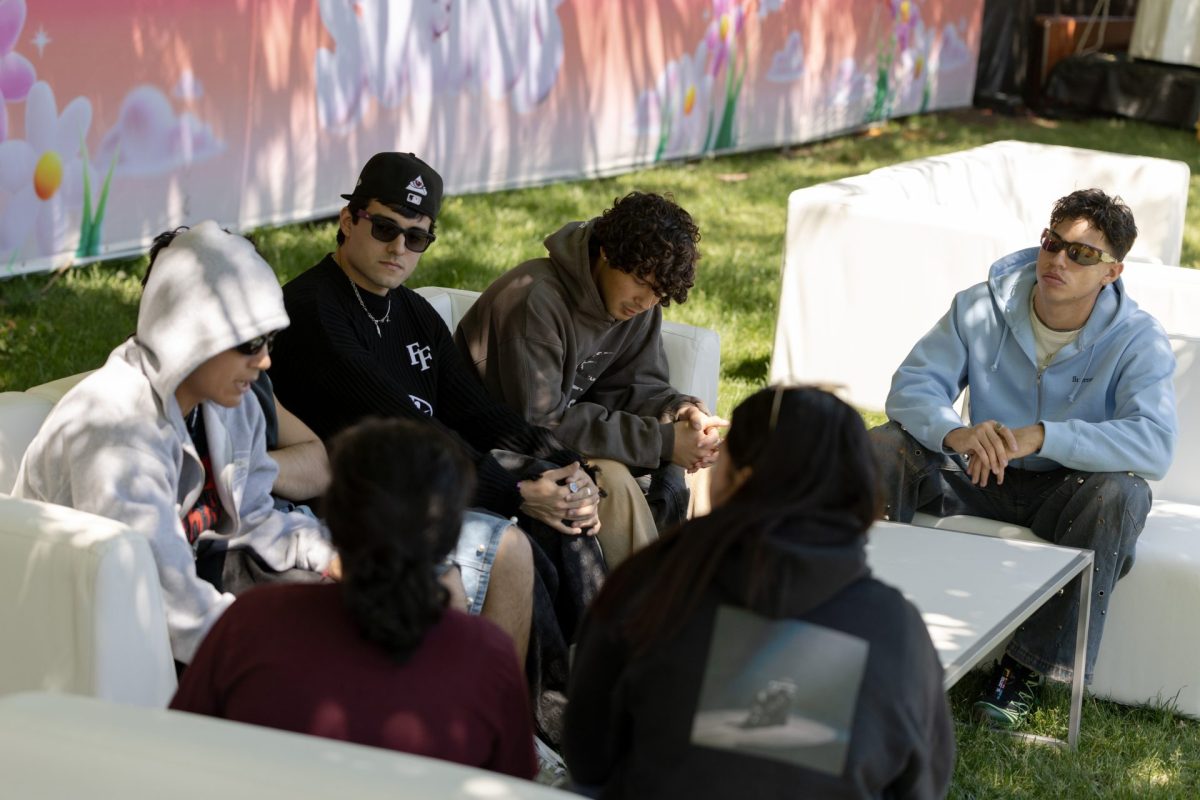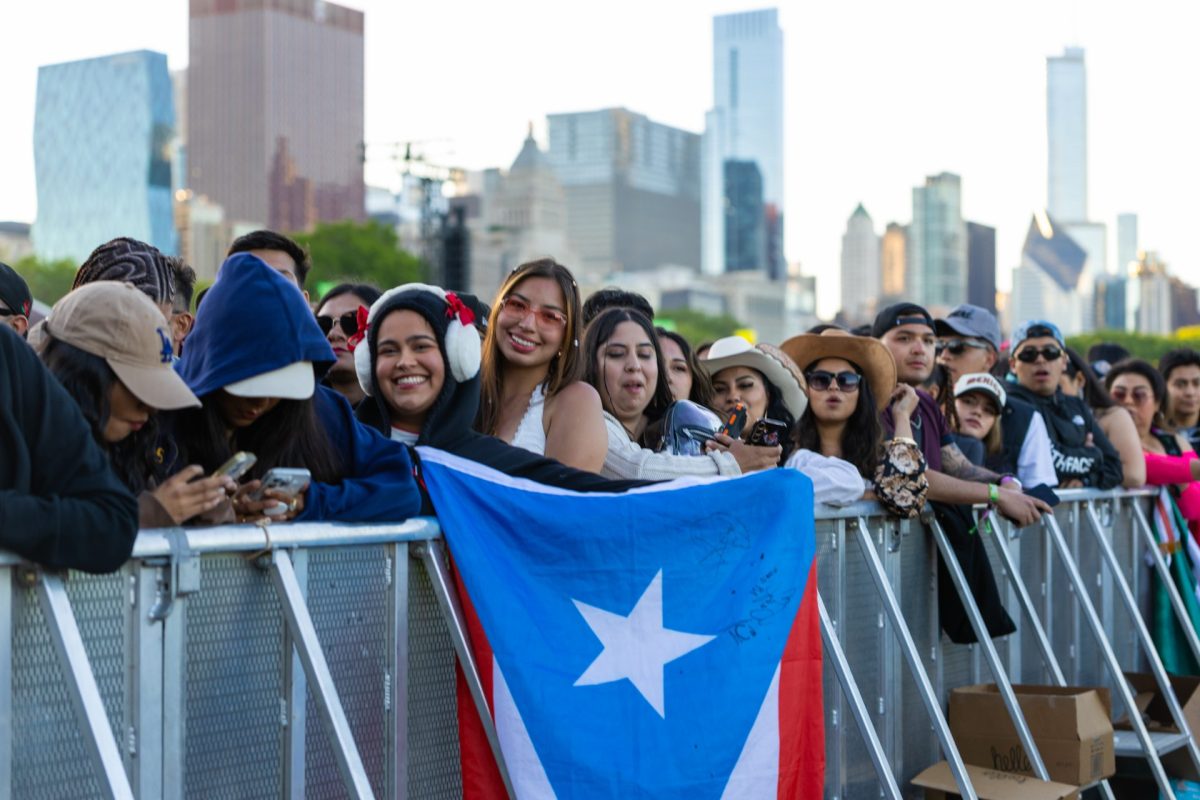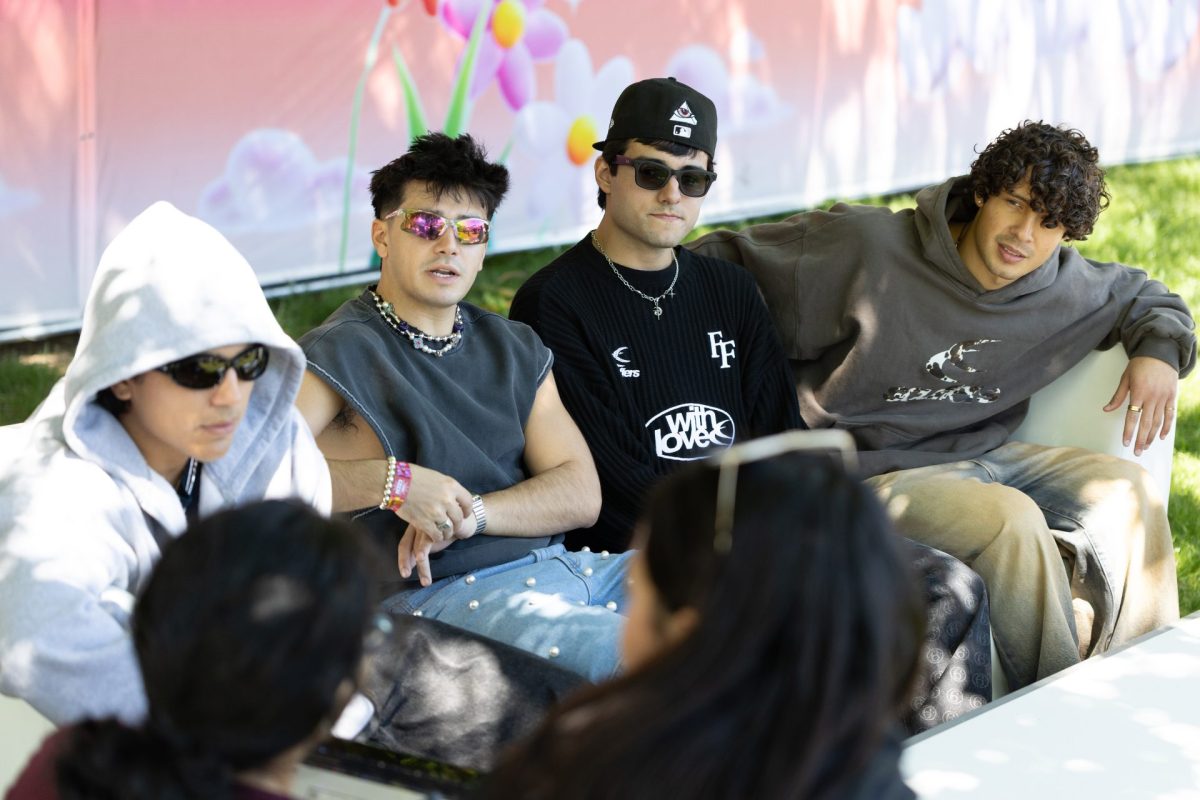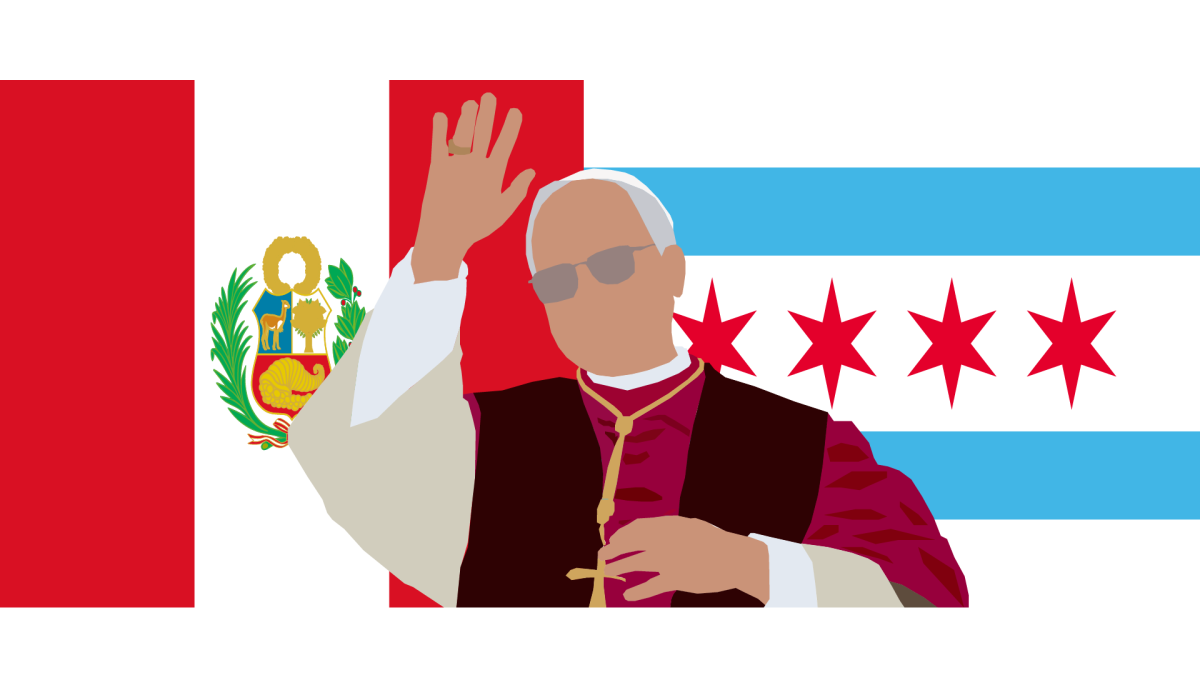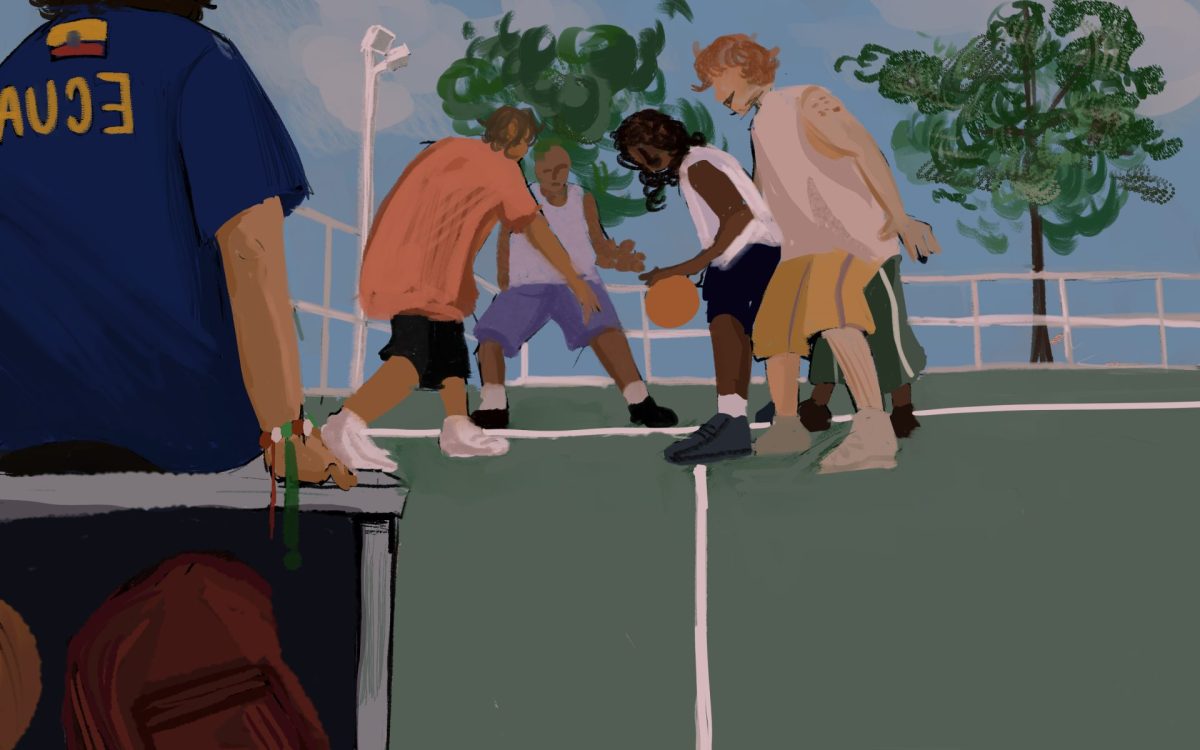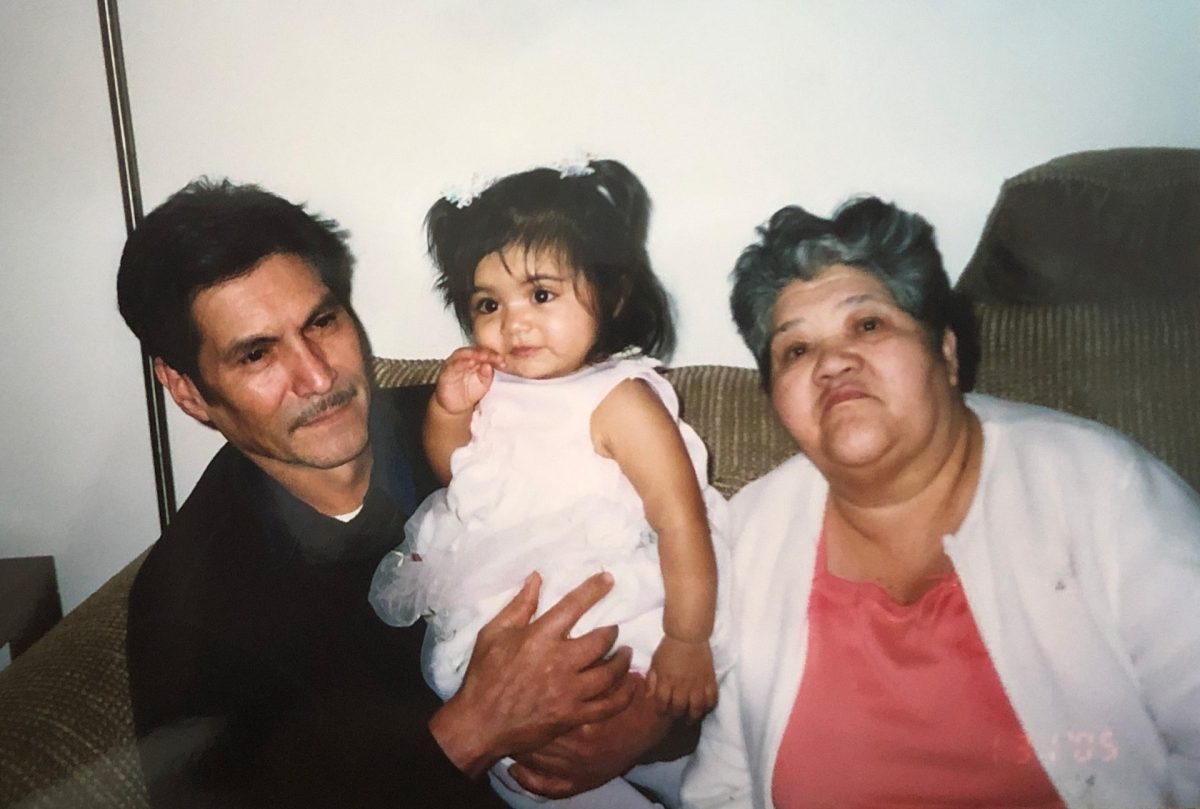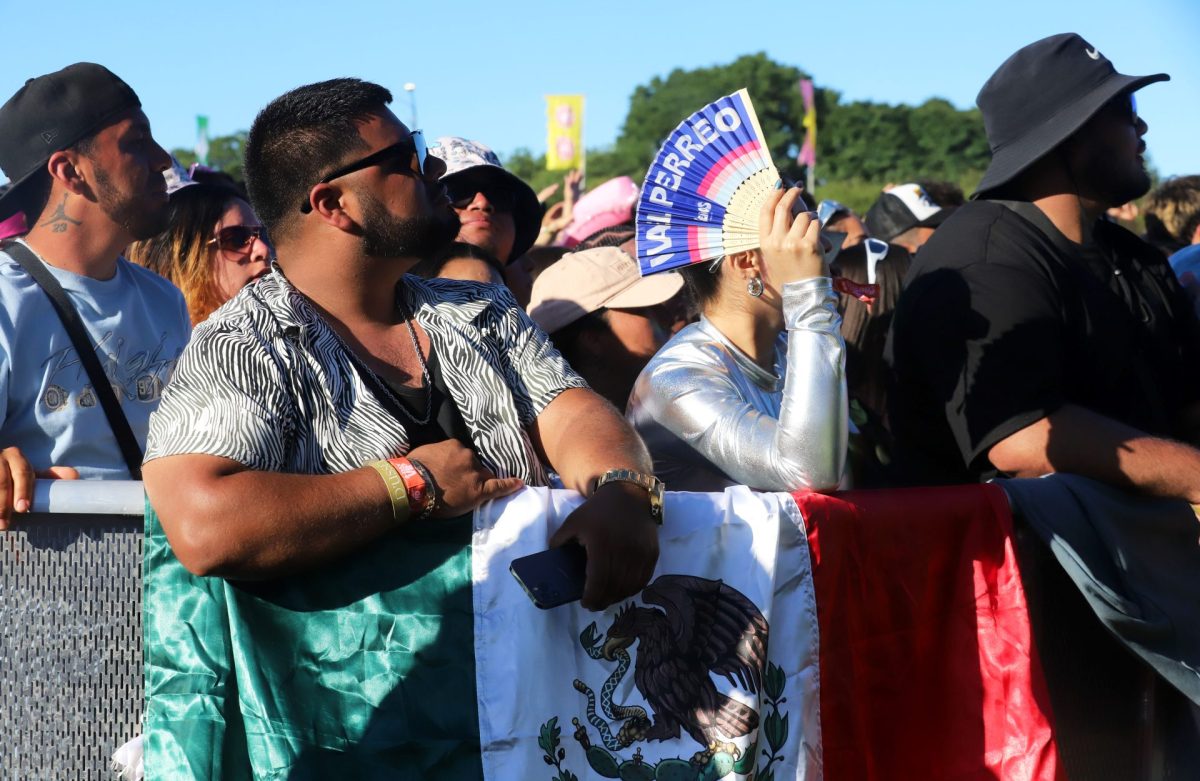“My last name is memory,” said Nancy Morejon at this year’s Poesia en Abril festival. She’s a Cuban poet and award-winning writer. After Morejon recited her poems, a lineup of other local and international Latine writers read their poetry inside Co-Prosperity, an experimental cultural center in Chicago on April 19.
Juana Quinones-Goergen, a DePaul emeritus professor of modern languages, developed Poesia en Abril 16 years ago as an all-Spanish, four-day live poetry festival in collaboration with the Chicago non-profit contratiempo. The festival is now co-directed by Rocío Ferreira, DePaul professor of Spanish and chair of the women and gender studies department.
This year’s poets traveled from Spain, Bolivia, Venezuela, Puerto Rico and Cuba, with Chicagoans in the mix. Focusing on this year’s “lazos” or (bonds) theme, poets connected with each other through language and similar narratives ranging from immigration and identity to grief and loss.
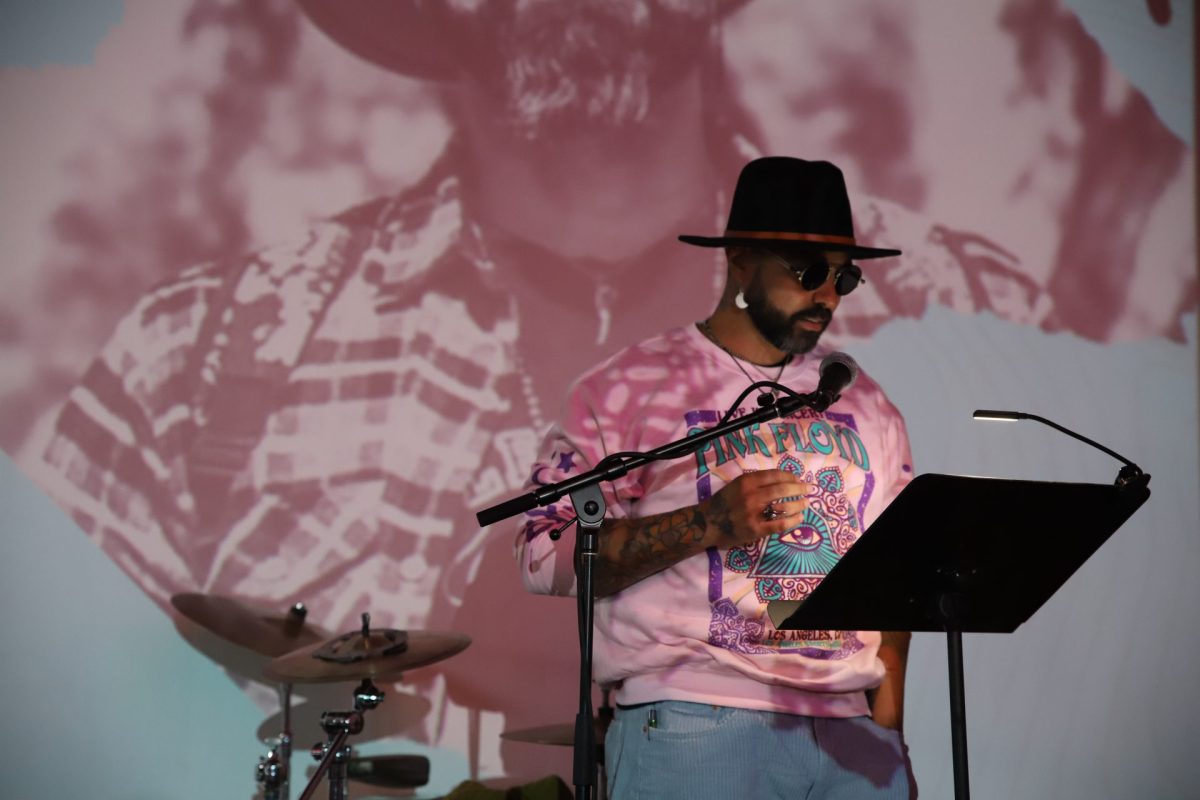
While there was diversity in nationalities, poetry in the Spanish language bridges these cultural gaps, Morejon said.
“Spanish is very meaningful to Spanish-speaking writers because it’s our mother tongue,” said Morejon. “We share a very interesting common experience through Spanish.”
Morejon recited a poem titled “Black Prince for George Floyd,” shedding light on the importance of the Black Lives Matter movement in Latine communities. Though poets came from across the world, they resonated with one another’s experiences, snapping their fingers throughout each other’s poems.
Bolivian poet Camila Urioste’s poetry layered cosmological imagery to depict her grief surrounding her father’s death. She incorporated words from old Spanish and Bolivia’s Indigenous language, Quechua.
“In a way, we’ve given birth to a new culture where we talk in Spanish and Indigenous languages, and I realize that not all words are straightforward Spanish,” she said. “It’s amazing for me to be able to realize this and weave it into my poetry to share with people.”
Urioste said she also enjoys experimenting with how language illustrates memories, something many other poets wrote about too.
The tamales and flautas, coupled with Latine jazz from the band, brought the poets together during an intermission, with a sea of different Spanish dialects echoing throughout the room. The night ended with a lively jazz performance from the band AlgoRitmo, whose distinctive keyboard, bongos and saxophone solos represented many facets of Latine music.
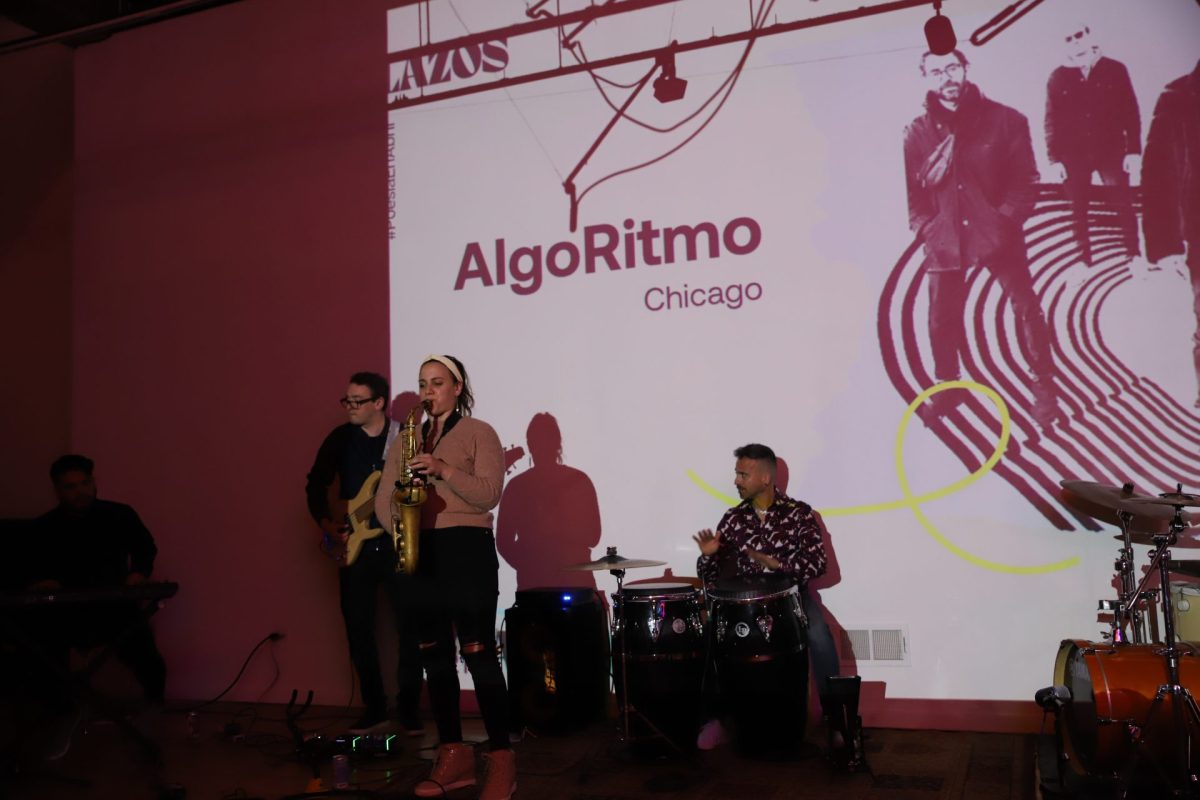
During an open dialogue session at Chicago’s Poetry Foundation, the poets gathered again to discuss the inspiration behind their work with free magazines from contratiempo featuring all of the performed poems.
Many of them reflected on their childhoods growing up in Latin America and how they carry it with them in the United States. Continuing Urioste’s emphasis on how Spanish shapes memories, poets also expressed their hopes for future generations to keep the language alive.
“I like to tell students to learn a foreign language,” said Morejon. “You’re going to learn tricks that will help you in the process of your own writing.”
Audience member Sol Ugalde said they enjoyed the intimacy of the open dialogue and learning about the poet’s journeys to the United States as immigrants, especially given each poet’s unique Spanish vernacular. They enjoyed the uniqueness of hearing other Spanish dialects, as a Mexican Spanish speaker from the United States.
“It was really nice to hear the different perspectives of the poets,” they said. “A lot of them reflected on growing up in Latin America and growing up in the United States as a Hispanic and how their identity influences how and what they write.”
Though Cuban, Spanish and South American Latine experiences differ in many ways, Poesia en Abril bridged gaps between different Spanish dialects through a shared passion for writing.
“Being here with writers who write in Spanish is really really meaningful,” Urioste said. “It’s like a heart beating inside the city, spreading out and bringing people together.”


